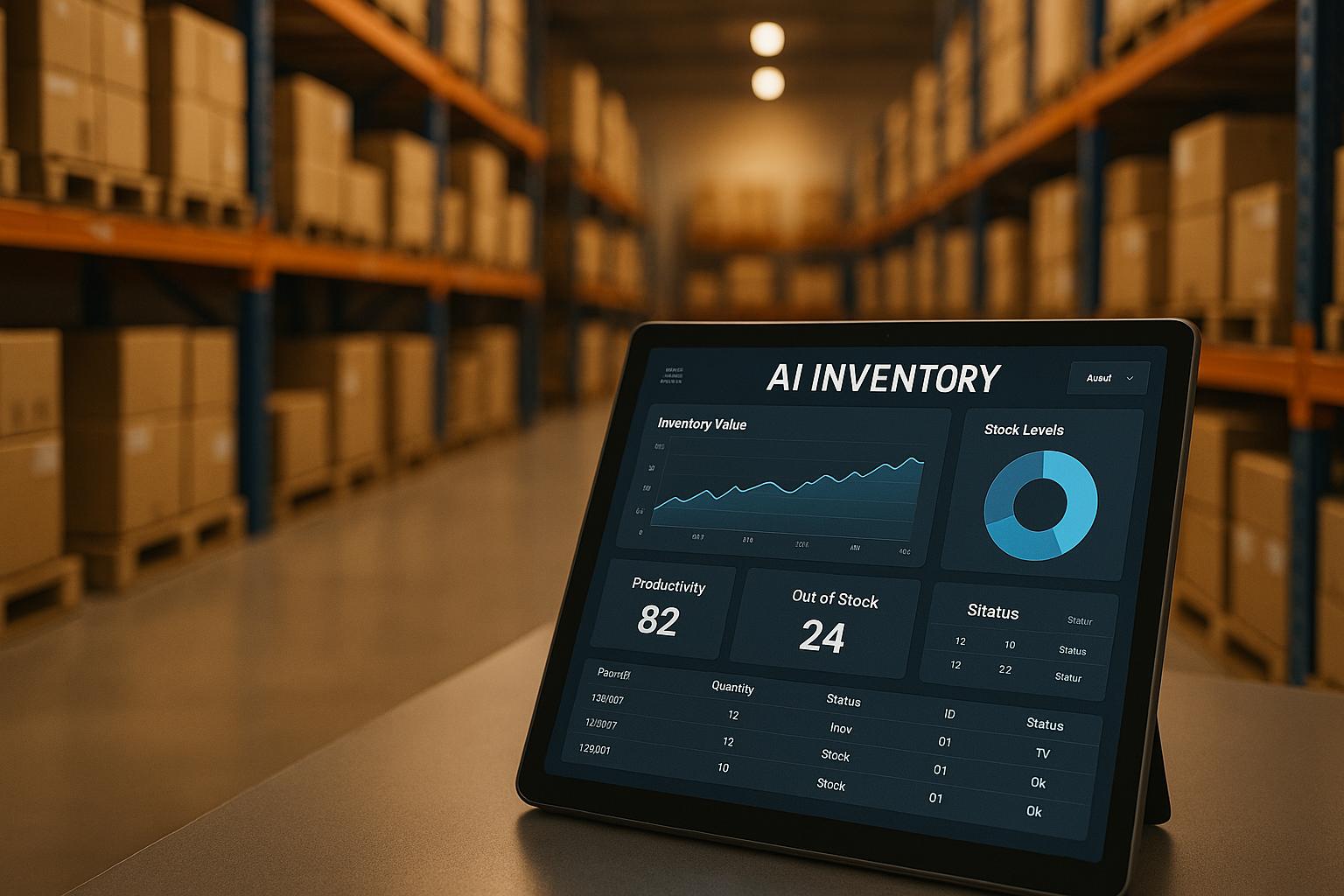
How AI Accelerates Digital Transformation in Distribution
The transformative power of artificial intelligence (AI) is evident across industries globally, and the distribution sector is no exception. In a recent expert panel discussion, industry leaders Alex Witzpollock from Continuum and Jared Helenic from Infor provided a wealth of insights into how AI is reshaping digital transformation within the distribution industry. From optimizing processes to revolutionizing customer engagement, this article distills key takeaways and offers actionable strategies for businesses looking to leverage AI effectively.
Introduction: The Promise of AI in Distribution
AI is no longer a futuristic concept – it’s a practical tool driving tangible results. In distribution, a sector characterized by complex supply chains and thin profit margins, AI has the potential to revolutionize operations. But the question many companies grapple with is: how can AI be implemented strategically to support digital transformation?
This article explores how AI enhances process automation, decision-making, and customer experience in distribution. Whether you’re a startup or a large enterprise in Canada, this guide provides insights tailored to your digital transformation journey.
How AI Supports Digital Transformation in Distribution
Data-Driven Decision Making: The Foundation of Transformation
One of the key roles of AI is helping companies make better use of the vast amounts of data they already possess. Many distributors feel their data is "a mess", but, as Alex Witzpollock explained, AI tools can help wrangle data and extract actionable insights. AI thrives on data, learning to identify patterns and trends that drive efficiencies.
To get started:
- Focus on integrating your existing systems and ensuring data connectivity. Even legacy systems, such as AS400, can be paired with a data lake or API layer to enable AI-powered insights.
- Leverage cloud platforms like Azure and AWS, which provide scalable AI tools that are easier to adopt than building systems from scratch.
Automation: Driving Efficiency and Speed
AI-powered automation is transforming routine and repetitive tasks, such as:
- Order Processing: Automatically extract and process data from PDF orders.
- Workforce Scheduling: Predict optimal schedules based on historical trends and seasonal changes.
- Returns and Warranties: Streamline the complex processes of managing returns, warranties, and repairs, as Continuum is doing.
Automation not only reduces manual effort but also minimizes errors, leading to faster and more consistent outcomes. By automating mundane tasks, employees can focus on higher-value activities.
Customer Engagement: Enhancing Personalization
AI is revolutionizing customer service by enabling:
- Intelligent Chatbots: These tools can provide real-time support, answer customer queries, and even recommend products based on order history.
- Predictive Tools: AI-driven systems can anticipate customer needs, such as identifying likely warranty claims or providing accurate delivery timelines.
Pro tip: For Canadian businesses, consider customizing chatbots to handle bilingual (English and French) interactions, ensuring compliance with cultural and linguistic expectations.
Innovation in Product Data Management
Efficient product data management is critical for digital transformation, but many distributors struggle with outdated or incomplete data. While AI can assist in organizing and optimizing product data, such as cataloguing and tagging, the technology works best when foundational data is already digitized.
To improve product data:
- Begin with a product lifecycle management (PLM) tool to centralize information.
- Use AI to identify and fill gaps in existing data, enabling more accurate categorization and updates.
Building AI Readiness: People, Processes, and Technology
Culture Shift: Overcoming Resistance to Change
For AI initiatives to succeed, organizations must address cultural resistance. Employees often fear that AI will replace their jobs, but, as Alex Witzpollock noted, the reality is often the opposite. AI elevates roles by automating repetitive tasks, allowing employees to focus on strategic and meaningful work.
To foster AI adoption:
- Frame AI as a tool for empowerment rather than replacement.
- Involve employees in the process from the start, ensuring their insights shape AI implementations.
- Highlight success stories where AI adoption has enhanced employees’ roles.
Technical Infrastructure: Cloud vs On-Premise
For most distributors, moving to the cloud offers unparalleled flexibility and scalability. Cloud systems provide access to modern AI tools without requiring the purchase of expensive on-premise hardware, such as GPUs. This is especially important for distributors with limited IT budgets.
Key considerations:
- Partner with trusted vendors to ensure data security and compliance, especially when dealing with sensitive customer information.
- Explore cloud-based visualization tools like PowerBI or Tableau for real-time data insights.
Talent Development: The Role of Data Scientists
Successful AI implementation requires skilled data scientists who understand both the technical and business aspects of your operations. For smaller organizations, hiring full-time data scientists may not be feasible, but partnering with external providers or using off-the-shelf AI solutions can bridge the gap.
For larger organizations:
- Invest in building an internal data analytics team with expertise in Python, machine learning, and business strategy.
- Provide ongoing training to ensure your team stays updated on the latest AI developments.
Challenges and Considerations
While AI offers immense potential, it’s not without challenges. Distribution companies must:
- Protect Data Privacy: Ensure compliance with Canadian privacy regulations, such as PIPEDA, when using AI tools.
- Avoid Over-Promising: Not all tools labelled as "AI" deliver genuine value. Conduct due diligence when selecting vendors.
- Prioritize Use Cases: AI is most effective when applied to well-defined problems with measurable outcomes. Focus on high-impact areas, such as inventory optimization or customer engagement.
Key Takeaways
- AI as an Enabler: AI supports digital transformation by automating tasks, enabling better decisions, and enhancing customer engagement.
- Start Small, Scale Smart: For smaller distributors, leveraging third-party solutions is a practical way to begin exploring AI.
- Leverage the Cloud: Cloud platforms simplify AI adoption by providing access to cutting-edge tools and reducing upfront costs.
- Invest in People: Successful AI initiatives require skilled teams who understand your business processes and goals.
- Focus on Data: Centralizing and organizing data is essential for unlocking AI’s full potential. Start with the data you have, and refine it over time.
- Cultural Alignment: Foster an open, growth-oriented culture where employees see AI as a partner, not a threat.
- Security First: Ensure that your AI solutions comply with Canadian data privacy regulations.
Conclusion
AI is more than just a buzzword – it’s a game-changing technology that holds the potential to redefine the distribution industry. For Canadian businesses, embracing AI means staying competitive in an increasingly digital world. However, success requires a thoughtful approach that combines technical readiness, cultural alignment, and strategic focus.
By starting small, partnering wisely, and fostering a culture of innovation, organizations can harness the power of AI to drive digital transformation and achieve sustainable growth. The time to act is now – because in the world of AI, the only constant is rapid change.
Source: "Technology Leader Panel: The Role of AI in Digital Transformation" – Distribution Strategy Group, YouTube, Aug 26, 2025 – https://www.youtube.com/watch?v=IWm0vojbhtI
Use: Embedded for reference. Brief quotes used for commentary/review.

